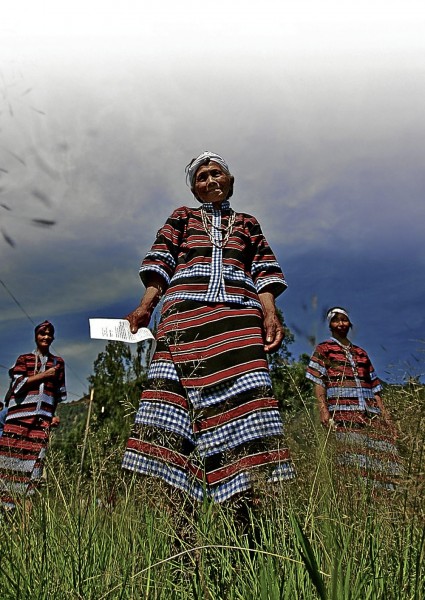In Benguet, continuing oral tradition via written word
Time was when, in many Igorot villages, children would gather around an evening bonfire to listen to the stories of elders. Listening was then a basic approach to transmit knowledge from the older to the younger generation.
But when television arrived, this practice slowly vanished; TV eventually replaced the elders and, in some way, schools.
In the upland town of Kibungan, Benguet, for example, electricity arrived only in the late 1970s. This was despite the presence of Ambuklao and Binga hydroelectric dams, which were built in the 1950s.
So those who have spent their childhood without electricity have most likely been informally educated by listening to their elders. They belong to the generation that listened to elders’ stories about “peace time” or the American colonial period, and stories about the suffering brought about by World War II in the 1940s.
As the elders and bearers of tradition and history are eventually fading and dying, members of the present generation, some elders lament, are either getting less interested in the knowledge of their elders or are simply distracted by TV, mobile phones and social networks.
Article continues after this advertisementHistorical snapshot
Article continues after this advertisementSo one elder took it upon himself that before he dies, he would at least pass on a historical snapshot about how his community of Kibungan and neighboring Kapangan town participated in helping win the last war.
Juanito Bolislis recently wrote four articles about World War II, focusing on his personal experiences. A native of Kibungan who migrated to Tabuk, Kalinga, in the 1950s where he married and settled, Bolislis, now 85, was barely 15 when the war broke out.
His first article, “Elders’ Prayers Thwart Possible Massacre,” tells about how Kibungan elders prevailed over temperamental young men, who at gunpoint, were threatened to pinpoint supporters or members of guerrilla forces against the Japanese Imperial Army in 1942.
Using intelligence information from a collaborator, Japanese soldiers claimed that there were supporters of guerrilla forces in the community. So the Japanese rounded up the menfolk and asked them to squat at the town hall grounds.
“At this point our elders were praying to our god—who included the heavenly bodies such as the sun, the moon and stars, and our dead ancestors—to protect us from danger because we had not done any fault to the Japanese soldiers,” Bolislis wrote.
The prayers helped the menfolk, especially the elders, to focus and come up with the wisest decision. They eventually chose three elders—Sao-an Dulin, Atayoc Bay-an and Teodoro Paguli—as spokespersons to appease Japanese soldiers.
The three admitted that the names of guerrilla members read by a Japanese soldier and interpreted by a Filipino were Philippine Army trainees “who were all brought to the lowlands for deployment but had not yet returned to collect their food rations.”
Alibi
The alibi seemed to have convinced the Japanese soldiers, who eventually freed the Kibungan men who, for about eight hours, were squatting and held closely to each other. One of the young men was Bolislis.
“When we were finally freed, we could hardly stand up, especially more so with the elders, as our knees were bent for many hours,” Bolislis wrote.
Bolislis’ other articles include “The Fighting Bolomen of Kibungan,” “First World War II Supplies for USAFIP-NL (United States Armed Forces in the Philippines-Northern Luzon) Brought by Submarines,” and “The First Airdrop of Supplies for USAFIP-NL.”
Through these stories, one can learn that Benguet’s young men and women, including Bolislis, helped in the war as porters of supplies and ammunition.
